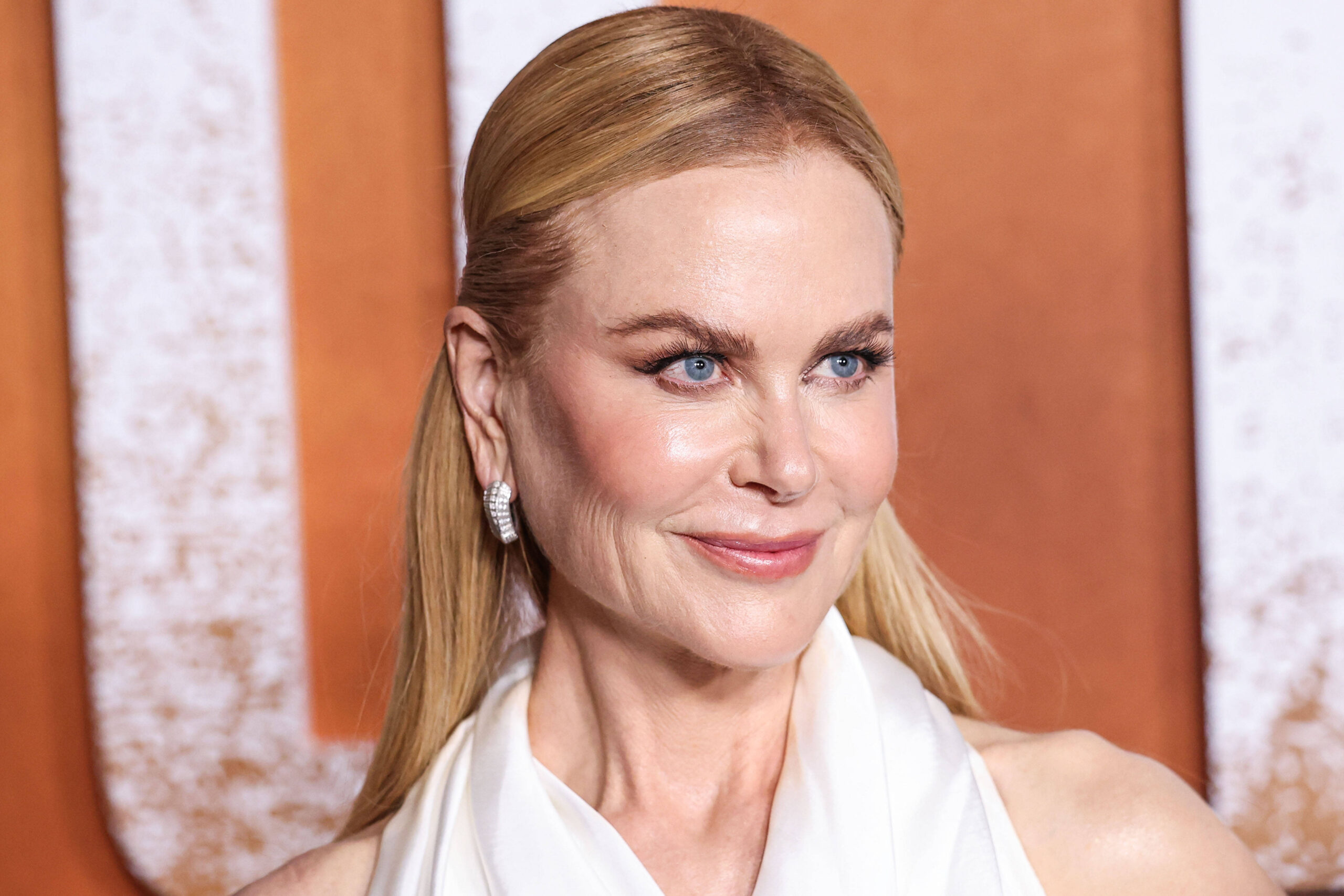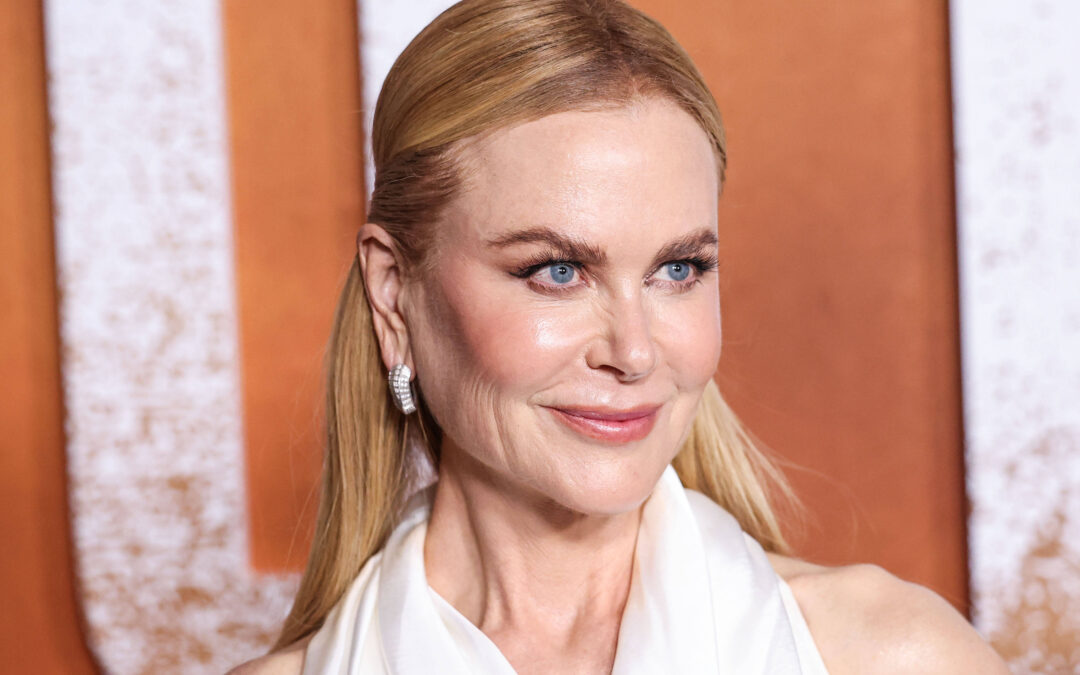Nicole Kidman snubs Scorsese – why A-list women aren’t working with the famous director
Words by Nikki Peach

It’s been a prolific year for Nicole Kidman. In January, she played an American living in Hong Kong in the Amazon Prime series Expats. In June, she starred opposite Zac Efron in the Netflix film, A Family Affair. In September, she led the platform’s hit crime drama, The Perfect Couple. And in October, the trailer dropped for her hotly anticipated (emphasis on hotly) erotic thriller Babygirl, which debuts on Christmas Day in the US and on 10 January 2025 in the UK.
All but one of those projects were directed by women. Kidman, then, is making conscious choices about who she chooses to work with and why – and people are starting to pay attention. It’s why her recent aside about Martin Scorsese in an interview withVanity Fair has received so much traction. ‘I’ve always said I want to work with Scorsese,’ she told the outlet, ‘if he does a film with women.’
Consistently ranked among the world’s highest paid actresses with a career spanning 40 years, it’s fair to say Kidman has not just earned the right to be picky over her projects, but perhaps even bears a responsibility to improve representation in the industry, one pointed comment at a time.
Scorsese’s past works include The Godfather, The Irishman, Goodfellas, The World of Wall Street and Killers of the Flower Moon. As many of their titles suggest, these are stories that foreground the inner workings and experiences of their male protagonists – most of which do not past the Bechdel test.
Only 29% of Scorsese’s films pass the Bechdel test
In fact, according to film buff and data analyst Norbert Elekes on X, only 29% of Scorsese’s films pass the test, in which a film must feature at least two female characters who have a conversation about something other than a man.
It sounds trite, but you’d be staggered to find how many films fail to meet this seemingly basic criteria. The Lord of the Rings, Casablanca, Shrek and Disney’s Ratatouilleoffer a varied illustration of the film industry’s deep-rooted problem with female representation.
Kidman is right to point out that Scorsese very rarely puts women front and centre in his projects. As one of Hollywood’s most sought after and critically acclaimed directors, with an Oscar, four BAFTAs, three Emmys, three Golden Globes and a Grammy under his belt, of course any actor would want to work with him.
Meryl Streep, widely considered to be the greatest actress of all time, shared a similar gripe in 2011 in an interview with The Talks. ‘I would like Martin Scorsese to be interested in a female character once in a while, but I don’t know if I’ll live that long.’ Nearly 14 years later, the pair are yet to have worked together.
It’s not looking good for Scorsese – at least not from a female point of view. In a comment made in an interview with Entertainment Weekly in the ‘90s, the director potentially showed his workings when he said that ‘women seem to be adjuncts’ in most of the films he works on.
‘In general, I have to be true to the society in which a story operates,’ he continued. ‘I don’t think it’s right to overbalance it just for the sake of trying to be politically correct.’ Does he know women make up half of the global population?!
‘I would like Martin Scorsese to be interested in a female character once in a while, but I don’t know if I’ll live that long’
Of course, several women have been able to shine in Scorsese films including Lily Gladstone who was nominated for an Oscar for her performance in Killers of the Flower Moon. Cathy Moriarty, Winona Ryder, Jodie Foster and Sharon Stone all also earned nominations for their roles in Scorsese films. However, only three of his films –The Age of Innocence, Alice Doesn’t Live Here Anymore and Boxcar Bertha – feature female leads.
Kidman did not expand on her comment, nor did she need to, and it’s unlikely that she intended for it to go viral, but it’s an observation that clearly resonates with people.
During the interview, the Babygirl actress went to on to list other directors she’d love to work with including Kathryn Bigelow, Spike Jonze, Paul Thomas Anderson and Michael Haneke. In fact, when Kidman accepted the prestigious AFI Lifetime Achievement Award in April, she dedicated her 15-minute speech to her collaborators.
She called director Jane Campion a ‘friend for life’ and singled out Phillip Noyce, Gus Van Sant, Stephen Daldry, Lars von Trier, Alejandro Amenabar, Jonathan Glazer, Noah Baumbuch, Mimi Leder, John Cameron Mitchell, Rob Marshall, Lee Daniels, Jonathan Levine, Philip Kaufman, Park Chan-wook, Yorgos Lanthimos, Werner Herzog, Garth Davis, Susanne Bier, Sofia Coppola, Karyn Kusama, Ryan Murphy and Aaron Sorkin. It’s clear that Kidman acts with intention and champions her collaborators wherever possible, knowing how important it is for any actor to be surrounded by a talented and supportive team.
If life imitates art, then what message does it send to women if they are rarely included in the films of one of Hollywood’s most famous working directors? Not only is it disappointing, but it’s hard to understand what Scorsese means by women being ‘adjuncts’ in any story or that he could ever be at risk of ‘overbalancing’ by including them. If he had more women on his call sheets, perhaps he’d be able to recognise that too.
IMAGE: IMAGO

